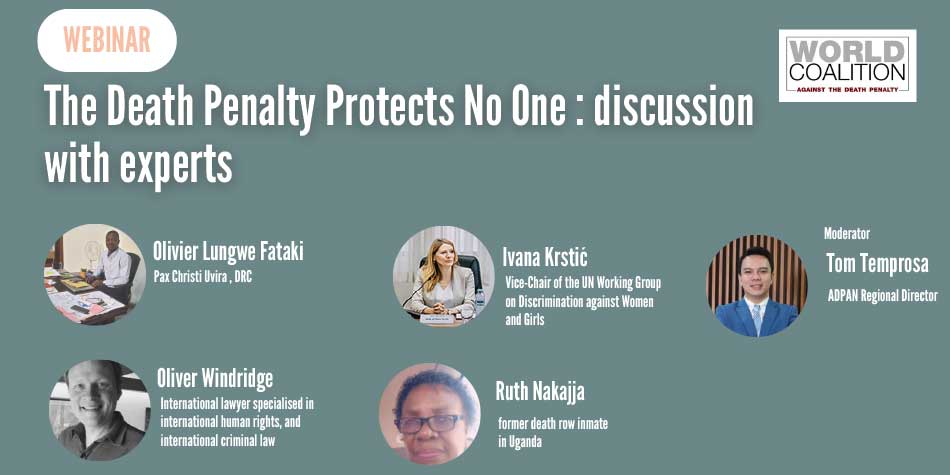Global outrage at Iranian juvenile execution
MENA
A deluge of criticism has been pouring on the Iranian government since Delara Darabi, 23, was hanged on May 1st after being found guilty of murdering a cousin when she was 17.
Many World Coalition member organisations denounced the secret execution, which took place in violation of Iranian and international law.
Iran is a state party to the International Covenant on Civil and Political rights and the Convention on the Rights of the Child, both of which clearly ban executing offenders who were under 18 at the time of their crime.
Moreover, the Iranian head of the judiciary granted Darabi a two-month stay of execution in the wake of international mobilisation on April 19.
“A callous affront to basic human dignity”
“It appears that Iran’s head of Judiciary has no ability to control even his own judges,” said Zama Coursen-Neff, deputy director of the children’s rights division at Human Rights Watch. “This is an outrageous violation of Iranian as well as international human rights law, and a callous affront to basic human dignity.”
Amnesty International added that Darabi’s lawyer was not informed of the execution, despite the legal requirement that he should receive 48 hours’ notice. “This appears to have been a cynical move on the part of the authorities to avoid domestic and international protests, which might have saved Delara Darabi’s life,” said Hassiba Hadj Sahraoui, deputy director of the organisation’s Middle East and North Africa programme .
Retracted confession and discarded material evidence
When a cousin of Darabi’s father was murdered six years ago, she and her boyfriend agreed that she would confess to the crime as her young age legally protected her from the death penalty. When it turned out that Iranian courts would ignore her juvenile status, she retracted her confession. Material evidence has since then emerged to prove that she is unlikely to be the murderer, but the courts always refused to consider it.
The verdict “was based on a confession from a child that did not know her rights, and was not made aware of the consequences for taking the blame for a crime she says she did not commit”, said Nazanin Afshin-Jam, president of Stop Child Executions, another World Coalition member organisation.
“Your departure from this temporary world we call Earth has emboldened and strengthened our fight to not only seek justice for the 140 children who remain on death row in Iran, but the 70 million captive citizens of Iran”, he added in an emotional posthumous address to Darabi.
In several cities across the world including Paris, London and Bern, citizens came on Wednesday, May 6 to lay flowers and photographs of the young woman in front of Iranian diplomatic representations.
Diplomatic presssure
The Czech presidency of the European Union “strongly condemned” the execution on May 2. “The Presidency of the European Union urgently calls on Iran to avoid any juvenile executions and to eliminate the death penalty for juveniles from its penal code. Such human rights violations erode the ground for understanding and mutual trust between Iran and the European Union”, the statement said.
The French government soon followed suit and called on Iran to “establish a moratorium on executions with a view to eventually abolish the death penalty”.
Iran executes more child offenders than any other country in the world. According to Stop Child Executions, two more juveniles are facing imminent execution.
A recent report by the International Federation for Human Rights denounced Iran’s unclear legislation on child executions and stated: “The widespread practice in Iran is to keep a minor convicted of a capital crime in prison until s/he grows to the age of 18 and then execute him/her.”
As the world prepares to celebrate the 20th anniversary of the Convention on the Rights of the Child, the World Coalition stressed that Iranian executions of juvenile offenders routinely violate an international treaty ratified by 193 of the United Nations’ 195 member states.
The World Coalition will highlight the importance of the Convention on World Day Against the Death Penalty, October 10, 2009, as part of the event’s “Teaching Abolition” theme.







